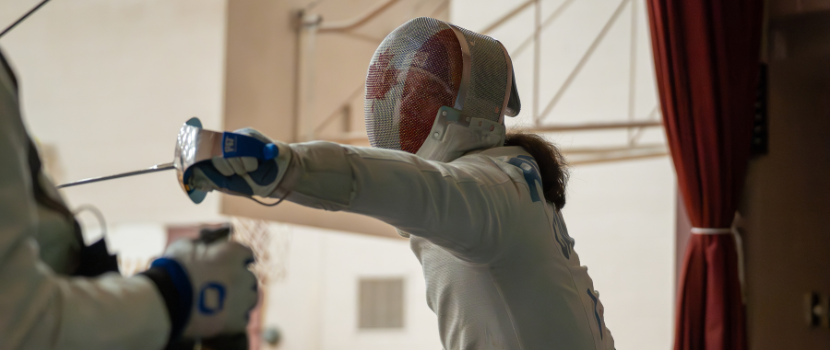SASKATOON — Ryan Rousell, a second-year student at Saskatchewan Polytechnic, balances his studies with his passion for wheelchair fencing. The para-athlete competed in the Paris Paralympics this past summer. His second experience on the international stage differed from his first at the Tokyo Paralympics during the pandemic.
“The atmosphere was completely different last time because there were no spectators and limited interactions with your team. The experience in Paris was what I expected, but preparing for it and actually experiencing it were totally different,” Rousell shares.
The versatile para-athlete competed in two wheelchair fencing categories, sabre and épée. His rigorous year-round training paid off, as Rousell placed 11th in the Men's Sabre Category A, finishing two spots ahead of his 2020 Paralympics debut. He placed 18th in the Men's Épée Category A. Rousell is looking to focus on sabre moving forward although he still plans on practising épée in local tournaments. He explains it's advantageous to specialize, as it reduces confusion between weapons and is healthier for his arm.
“Sabre has always been my primary weapon. I enjoy the mental game of chess and the speed of the sport. I like seeing what my opponent is doing. With sabre, you have to be in the moment,” Rousell shares noting sabre is the fastest form of fencing.
Rousell started his athletic journey with able-bodied teammates 19 years ago in Asquith, Sask. Affected with cerebral palsy, he transitioned to wheelchair fencing almost a decade ago. Tournaments are held every two months, and Rousell competes in three to four tournaments yearly. He is currently pausing training after competing in the Paralympics and is now focusing on his Computer System Technology studies at Sask Polytech in Saskatoon.
“I’ve always been good with computers. I’ve always had a passion for technology, especially the hardware aspect. Computer Systems Technology lets me branch out into multiple different avenues,” Rousell says.
To him, it’s important to keep a balance between his education and his athletic career even if it isn’t always easy.
“I’m a night owl. I spend my nights catching up. Balancing is about prioritizing what’s important and setting other elements aside to make sure you get to what you need,” he shares.
Ron New, program head of the Computer Systems Technology program, says Rousell has worked hard on both of his passions throughout his studies.
“Ryan showed a great determination to pursue his Paralympic dream while trying to make it through a very challenging program. At one point last year, while trying to qualify for the Paralympics, he was working on a group project remotely from Brazil. He was able to qualify and contribute to the project. He arrived back in Saskatoon shortly before the course ended and he was able to contribute to the group’s final presentation,” he notes.
Rousell’s goal is to finish his program, get a job and continue to develop his fencing. To him, his passion for both his career and his sport are important parts of his life.
“It requires a level of determination similar to my passion for fencing to pursue an education and career in an ever-changing field like computer technology. You also have to be committed to fencing,” Rousell says, “I hope I get a job I enjoy that will help me to continue my sport because fencing is a part of who I am.”
The two-year prepares future IT professionals for careers such as computer programmer, software designer/developer, mobile app programmer, network analyst, webmaster, web designer and systems administrator.
Read Rousell’s athletic profile by the .
— Submitted by Sask Polytech Media Relations




